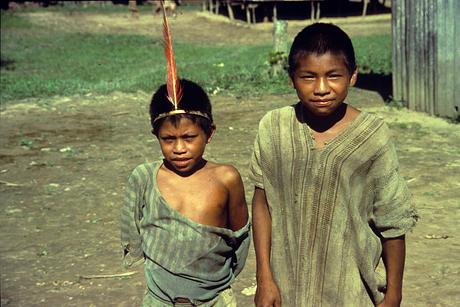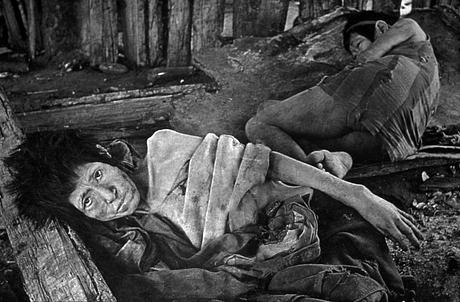New report reveals tribal peoples at greatest risk from swine flu
September 30, 2009

Report comes as body bags sent to native Canadians
A report launched today by human rights group Survival International shows that tribal peoples across the world are at greatest risk from swine flu, as many have poor immunity and suffer chronic underlying illnesses.
The report, Swine flu and tribal peoples, shows that Indigenous peoples in Australia and Canada have been hard hit by the swine flu pandemic, as the majority live in poverty, suffering overcrowding and poor sanitation, and have high rates of chronic illnesses such as diabetes, heart disease, obesity and alcoholism.
The report comes just days after supplies of body bags were delivered to First Nations communities in Manitoba, Canada, along with hand sanitizers and face masks.
First Nations communities in the province have seen infection rates of 130 per 100,000 compared with just 24 per 100,000 among the general population. However, although many households do not have access to clean water, the Canadian government delayed sending hand sanitizers to reserve communities, where alcoholism is rife, for fear that people would attempt to ingest the alcohol in them.
Grand Chief David Harper told CBC, ‘I make a plea to the people of Canada to work with us to ensure the lowest fatalities from this monster virus. Don’t send us body bags. Help us organize; send us medicine.’
Armand MacKenzie of the Innu Nation of eastern Canada, said today, ‘In Canada, I hope that the words “highest attainable standards of health” mean more than sending body bags to Indigenous First Nations communities. We need a real pandemic plan in partnership with Indigenous First Nations. Not body bags!’
The report also raises concern for isolated tribes who have no immunity to outside diseases and for whom even the common cold can prove fatal. Members of the Matsigenka tribe in the Peruvian Amazon have already been struck by swine flu, leading to fears for the health of neighbouring uncontacted tribes. Any contact with outsiders carrying the virus could devastate entire communities.
Stephen Corry, Director of Survival, said today, ‘That tribal peoples are worst affected by swine flu comes as no surprise. Years of colonialism and forced assimilation policies have left them in destitution with chronic health problems. This report makes for sober reading but it should also serve as a wake up call to those governments that have ignored the health needs of their most vulnerable populations for too long.’
For more information and images please contact Miriam Ross:
T (44) (0)20 7687 8734 or (44) (0)7504543367
E [email protected]


